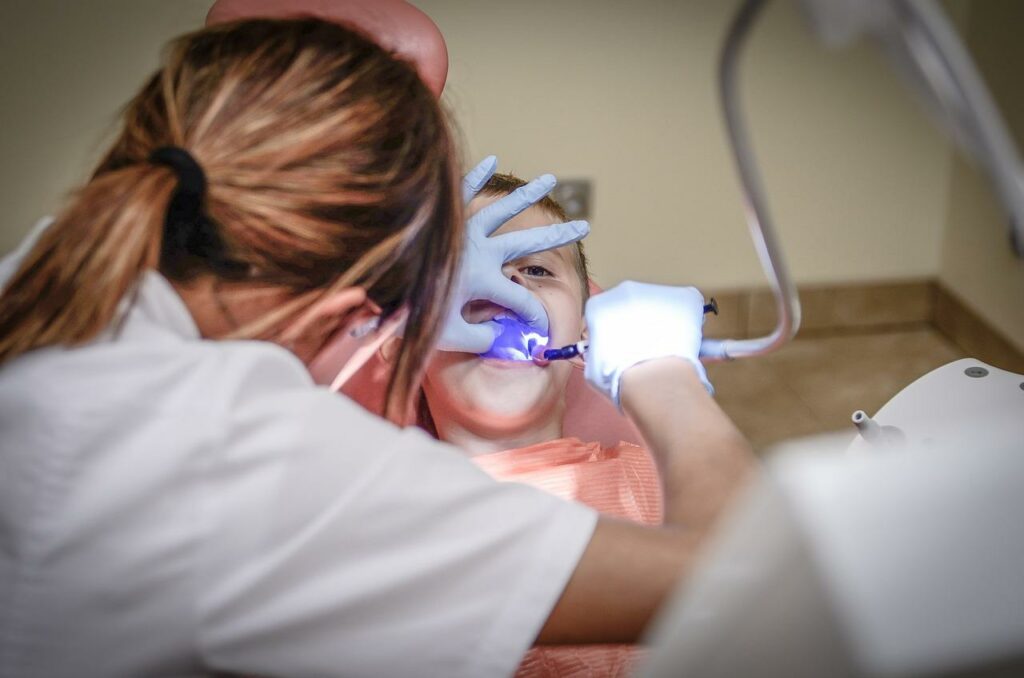The Health Risks Associated With Crooked Teeth

Oral health is a critical aspect of overall well-being. However, a significant number of Ohioans face challenges related to crooked teeth, which can lead to various health issues. According to the Ohio Department of Health, nearly 30% of adults in Ohio have not visited a dentist in the past year, which can exacerbate problems related to dental misalignment. Misaligned teeth are not just a cosmetic concern; they can cause difficulties with chewing, speech, and maintaining proper oral hygiene, which can lead to more serious health conditions. Understanding these risks is essential for making informed decisions about dental care. This article explores the health risks associated with crooked teeth and offers insights into how residents of Ohio can address them effectively.
1. Difficulty in Maintaining Oral Hygiene
Crooked teeth can make it challenging to maintain proper oral hygiene. When teeth overlap or are too close together, it becomes difficult to clean all the surfaces effectively with a toothbrush or floss. This can lead to the buildup of plaque and tartar, which are the primary culprits in causing cavities and gum disease. Regular dental check-ups and cleanings become even more critical for individuals with misaligned teeth to prevent these issues. By ensuring thorough cleaning, you can mitigate the risk of decay and maintain better oral health despite the challenges posed by crooked teeth.
2. Increased Risk of Tooth Decay and Gum Disease
Misaligned teeth create hard-to-reach areas where plaque and bacteria can accumulate, leading to tooth decay and gum disease. These conditions can progress if left untreated, causing pain, infection, and even tooth loss. Individuals struggling with crooked teeth should look up the best braces in Beavercreek, OH online to find suitable orthodontic treatments. Early intervention with braces can help align the teeth properly, reducing the risk of decay and gum disease. Proper alignment facilitates better cleaning, decreasing the likelihood of cavities and periodontal issues. Addressing misalignment can significantly improve long-term dental health.
3. Impact on Digestive Health
Crooked teeth can interfere with proper chewing, which is the first step in the digestive process. When teeth do not align correctly, it becomes difficult to break down food adequately. This can lead to digestive problems as larger food particles are harder to digest. Poor chewing efficiency can cause discomfort and digestive issues such as acid reflux and bloating. Ensuring that teeth are properly aligned can improve chewing efficiency and, consequently, overall digestive health. Investing in orthodontic treatments to correct misalignment can lead to better digestion and nutrient absorption.
4. Speech Difficulties
Misaligned teeth can also affect speech. Teeth play a crucial role in forming sounds, and when they are out of alignment, it can lead to difficulties in pronunciation and speech clarity. Common speech problems associated with crooked teeth include lisps and misarticulation of certain sounds. These issues can impact self-esteem and social interactions, especially in children. Addressing dental misalignment with orthodontic treatments can help improve speech and boost confidence. Early intervention can be particularly beneficial for children, allowing them to develop clear and effective communication skills as they grow.
5. Increased Risk of Injury
Crooked teeth are more susceptible to injury, especially in individuals who participate in contact sports or other physical activities. Protruding teeth can easily get chipped, cracked, or knocked out during an accident. Wearing mouthguards can provide some protection, but aligning the teeth properly reduces the risk of injury significantly. Orthodontic treatments can help correct the alignment, making teeth less vulnerable to damage. Ensuring that teeth are properly aligned not only improves aesthetics but also enhances their resilience to physical trauma, providing better protection for long-term dental health.
6. Temporomandibular Joint (TMJ) Disorders
Crooked teeth can contribute to temporomandibular joint (TMJ) disorders, which affect the jaw joints and muscles. Misalignment can cause uneven pressure and strain on the jaw, leading to pain, headaches, and difficulty in opening and closing the mouth. TMJ disorders can significantly impact daily life, making activities like eating and speaking painful. Correcting dental misalignment through orthodontic treatments can alleviate the pressure on the jaw joints, reducing the risk of developing TMJ disorders. Proper alignment helps distribute bite forces evenly, promoting healthier jaw function and reducing discomfort.
7. Impact on Self-Esteem and Mental Health
The appearance of crooked teeth can negatively affect self-esteem and mental health. Many people feel self-conscious about their smiles, leading to reduced confidence and social anxiety. This can affect personal and professional interactions, limiting opportunities and overall quality of life. Addressing dental misalignment not only improves oral health but also enhances appearance, boosting self-confidence. Orthodontic treatments can provide a significant psychological benefit by helping individuals feel more comfortable and confident in social situations. A healthy, straight smile can lead to a more positive self-image and improved mental well-being.
8. Halitosis (Bad Breath)
Crooked teeth can contribute to halitosis, or bad breath, due to the accumulation of food particles and bacteria in hard-to-clean areas. These areas provide a breeding ground for bacteria that produce unpleasant odors. Regular brushing and flossing may not be sufficient to reach these spaces, leading to persistent bad breath. Addressing dental misalignment through orthodontic treatment can help eliminate these problematic areas, promoting better oral hygiene and fresher breath. Maintaining proper alignment and cleanliness of teeth is essential for preventing halitosis and ensuring good oral hygiene.
9. Erosion and Wear
Misaligned teeth can cause uneven wear and erosion over time. When teeth do not meet correctly, certain areas can experience excessive pressure and friction, leading to enamel erosion and wear. This can result in tooth sensitivity, pain, and increased risk of cavities. Ensuring that teeth are properly aligned helps distribute bite forces evenly, reducing the risk of wear and protecting the enamel. Orthodontic treatments can correct the alignment, promoting even wear and maintaining the strength and integrity of the teeth. Proper alignment is essential for preserving the longevity and health of your teeth.
10. Long-Term Oral Health Complications
Crooked teeth, if left untreated, can lead to a host of long-term oral health complications. These include chronic gum disease, tooth loss, and even bone loss in the jaw. Misalignment can exacerbate these issues, making them harder to treat and manage. Early intervention and regular dental care are crucial to prevent these long-term complications. Addressing dental misalignment through orthodontic treatments and maintaining diligent oral hygiene can significantly improve long-term oral health outcomes. Investing in the health and alignment of your teeth can prevent severe complications and promote overall well-being.
Conclusion
Crooked teeth pose more than just an aesthetic concern; they can lead to significant health issues affecting oral hygiene, digestive health, speech, and overall well-being. Understanding the risks associated with misaligned teeth is crucial for making informed decisions about dental care. By addressing these issues through proper orthodontic treatments and maintaining diligent oral hygiene practices, you can prevent the health risks associated with crooked teeth and enjoy a healthier, more confident smile. Investing in dental health not only enhances your appearance but also promotes long-term physical and mental well-being.







